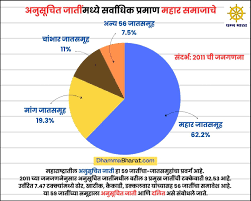
Political earthquake due to sub-categorization of Scheduled Castes in Maharashtra?
Political earthquake due to sub-categorization of Scheduled Castes in Maharashtra? Socio-political consequences of a decision that was avoided for a year
Mumbai, October 13, 2025: The political and social tug-of-war that has been going on for a year on the issue of sub-categorization of reservation for Scheduled Castes (SC) in Maharashtra has now been somewhat postponed. After the Supreme Court's 2024 verdict, the implementation of the Maharashtra Scheduled Castes (Sub-categorization) Act, 2024, brought by the state government, will be given a period of one year. Although this decision is an important step in the journey of social justice in Maharashtra, uncertainty remains about what will happen next. What will be the social, political and economic consequences of this law, which was brought with the aim of making the distribution of reservation benefits more equitable? This question has become a topic of discussion at various levels in the state today.
The proportion of Scheduled Castes in Maharashtra is about 12.5 crore, which is 11.81 percent of the total population of the state (as per the 2011 census). The Mahar community accounts for 50 to 60 percent of this, while the proportion of Matang, Bhangi and other sub-castes is 19 percent and 7 percent respectively. In the last few decades, the majority of the benefits of reservation were limited to the Mahar community, which had led to growing discontent among other sub-castes. Against this backdrop, the demand for sub-categorization gained momentum. The Supreme Court's verdict in the case of 'State of Punjab vs. Davinder Singh' on August 1, 2024, allowed states to sub-categorize into SCs and STs. Earlier, the 'E.V. Chinnaiyya vs. State of Andhra Pradesh' verdict of 2004 had prohibited this sub-categorization, making this decision historic. Taking advantage of this verdict, the state government passed the Maharashtra Scheduled Castes (Sub-Categoryization) Bill in a special session on August 27, 2024. As per the recommendations prepared by the Justice Sandeep Bakre Committee, the sub-categorization of the 13 percent quota of SC reservation has been decided as follows: 13 percent for Mahar and affiliated sub-castes, 11 percent for Matang and affiliated, 4 percent for Bhangi and affiliated, 3 percent for Other Backward Castes and 1 percent for Nomadic SCs. The Act will come into effect from the academic year 2025-26 for educational admissions and from January 1, 2025 for government jobs. However, now that a year has been given for this implementation, there will be no change in the new academic session and job recruitment process.
The social implications of this decision are significant. As 70 to 80 percent of the benefits of reservation were limited to the Mahar community, sub-castes like Matang and Bhangi had to remain marginalized in education and jobs. According to the 2018 Maharashtra State Commission for Scheduled Castes and Scheduled Tribes report, other sub-castes got only 20 to 25 percent benefits. It is expected that this proportion will increase to 30 to 40 percent with sub-categorization. These sub-castes living in rural areas will now get opportunities in higher education and government jobs, which will reduce social tension. However, there is also a fear that this will weaken the unity of the SC community. Leaders of the Dalit movement say, "Reservation is a weapon of collective struggle, sub-categorization can break it into pieces."
From a political point of view, this law has been politically beneficial for the grand alliance government (Shiv Sena-BJP-NCP). Out of 288 seats in the Maharashtra assembly, 29 seats are reserved for SCs and 19 percent of the SC voters in the state have a large influence. The fragmentation of SC votes was beneficial for the BJP in the 2024 Lok Sabha elections. The sub-categorization has given the government an opportunity to attract voters from Matang and other sub-castes. Chief Minister Eknath Shinde said, "This law fulfills the long-standing demand for social justice among SCs. This will provide equal opportunities to all sub-castes." However, this is a challenge for the opposition parties. The Congress and the Nationalist Congress Party (Sharad Pawar group) are mainly based on the Mahar community, so it remains to be seen whether their voters will budge. Leaders like Prithviraj Chavan say, "We support this law, but we have to be careful not to divide the Dalit community." Experts are divided on this. Justice Sandeep Bakre, whose committee framed the law, said, "Subcategorization is based on scientific data. The fruits of reservation need to reach the most backward subcastes. A review is needed after five years." Sociologist Prof. Vivek Montero said, "This decision will remove historical injustice, but if not implemented sensitively, caste divisions will increase. Maharashtra's experience will be a guide for other states." Political analyst Shailendra Gaikwad said, "This is a politically astute move by the government, but it will be challenged in the Supreme Court. It will be checked whether the 'creamy layer' principle is not violated." An activist from the Matang community said, "Finally, we will get a share of the reservation quota. Earlier, we were invisible." The caste census launched by the Maharashtra State Backward Classes Commission will play a key role in implementing the law. The survey, which is ongoing in over 1,000 villages, is expected to be completed by mid-2025. However, it needs to get approval from the central government under Article 341, which is still pending. Some SC groups have raised questions in the Bombay High Court over the constitutional validity of the law, which is likely to delay its implementation.
Talking about the future implications, experts say that if the law is successful, it will be an inspiration for other states.
Political earthquake due to sub-categorization of Scheduled Castes in Maharashtra? Socio-political consequences of a decision that was avoided for a year
Mumbai, October 13, 2025: The political and social tug-of-war that has been going on for a year on the issue of sub-categorization of reservation for Scheduled Castes (SC) in Maharashtra has now been somewhat postponed. After the Supreme Court's 2024 verdict, the implementation of the Maharashtra Scheduled Castes (Sub-categorization) Act, 2024, brought by the state government, will be given a period of one year. Although this decision is an important step in the journey of social justice in Maharashtra, uncertainty remains about what will happen next. What will be the social, political and economic consequences of this law, which was brought with the aim of making the distribution of reservation benefits more equitable? This question has become a topic of discussion at various levels in the state today.
The proportion of Scheduled Castes in Maharashtra is about 12.5 crore, which is 11.81 percent of the total population of the state (as per the 2011 census). The Mahar community accounts for 50 to 60 percent of this, while the proportion of Matang, Bhangi and other sub-castes is 19 percent and 7 percent respectively. In the last few decades, the majority of the benefits of reservation were limited to the Mahar community, which had led to growing discontent among other sub-castes. Against this backdrop, the demand for sub-categorization gained momentum. The Supreme Court's verdict in the case of 'State of Punjab vs. Davinder Singh' on August 1, 2024, allowed states to sub-categorize into SCs and STs. Earlier, the 'E.V. Chinnaiyya vs. State of Andhra Pradesh' verdict of 2004 had prohibited this sub-categorization, making this decision historic. Taking advantage of this verdict, the state government passed the Maharashtra Scheduled Castes (Sub-Categoryization) Bill in a special session on August 27, 2024. As per the recommendations prepared by the Justice Sandeep Bakre Committee, the sub-categorization of the 13 percent quota of SC reservation has been decided as follows: 13 percent for Mahar and affiliated sub-castes, 11 percent for Matang and affiliated, 4 percent for Bhangi and affiliated, 3 percent for Other Backward Castes and 1 percent for Nomadic SCs. The Act will come into effect from the academic year 2025-26 for educational admissions and from January 1, 2025 for government jobs. However, now that a year has been given for this implementation, there will be no change in the new academic session and job recruitment process.
The social implications of this decision are significant. As 70 to 80 percent of the benefits of reservation were limited to the Mahar community, sub-castes like Matang and Bhangi had to remain marginalized in education and jobs. According to the 2018 Maharashtra State Commission for Scheduled Castes and Scheduled Tribes report, other sub-castes got only 20 to 25 percent benefits. It is expected that this proportion will increase to 30 to 40 percent with sub-categorization. These sub-castes living in rural areas will now get opportunities in higher education and government jobs, which will reduce social tension. However, there is also a fear that this will weaken the unity of the SC community. Leaders of the Dalit movement say, "Reservation is a weapon of collective struggle, sub-categorization can break it into pieces."
From a political point of view, this law has been politically beneficial for the grand alliance government (Shiv Sena-BJP-NCP). Out of 288 seats in the Maharashtra assembly, 29 seats are reserved for SCs and 19 percent of the SC voters in the state have a large influence. The fragmentation of SC votes was beneficial for the BJP in the 2024 Lok Sabha elections. The sub-categorization has given the government an opportunity to attract voters from Matang and other sub-castes. Chief Minister Eknath Shinde said, "This law fulfills the long-standing demand for social justice among SCs. This will provide equal opportunities to all sub-castes." However, this is a challenge for the opposition parties. The Congress and the Nationalist Congress Party (Sharad Pawar group) are mainly based on the Mahar community, so it remains to be seen whether their voters will budge. Leaders like Prithviraj Chavan say, "We support this law, but we have to be careful not to divide the Dalit community." Experts are divided on this. Justice Sandeep Bakre, whose committee framed the law, said, "Subcategorization is based on scientific data. The fruits of reservation need to reach the most backward subcastes. A review is needed after five years." Sociologist Prof. Vivek Montero said, "This decision will remove historical injustice, but if not implemented sensitively, caste divisions will increase. Maharashtra's experience will be a guide for other states." Political analyst Shailendra Gaikwad said, "This is a politically astute move by the government, but it will be challenged in the Supreme Court. It will be checked whether the 'creamy layer' principle is not violated." An activist from the Matang community said, "Finally, we will get a share of the reservation quota. Earlier, we were invisible." The caste census launched by the Maharashtra State Backward Classes Commission will play a key role in implementing the law. The survey, which is ongoing in over 1,000 villages, is expected to be completed by mid-2025. However, it needs to get approval from the central government under Article 341, which is still pending. Some SC groups have raised questions in the Bombay High Court over the constitutional validity of the law, which is likely to delay its implementation.
Talking about the future implications, experts say that if the law is successful, it will be an inspiration for other states.
Mumbai, October 13, 2025: The political and social tug-of-war that has been going on for a year on the issue of sub-categorization of reservation for Scheduled Castes (SC) in Maharashtra has now been somewhat postponed. After the Supreme Court's 2024 verdict, the implementation of the Maharashtra Scheduled Castes (Sub-categorization) Act, 2024, brought by the state government, will be given a period of one year. Although this decision is an important step in the journey of social justice in Maharashtra, uncertainty remains about what will happen next. What will be the social, political and economic consequences of this law, which was brought with the aim of making the distribution of reservation benefits more equitable? This question has become a topic of discussion at various levels in the state today.
The proportion of Scheduled Castes in Maharashtra is about 12.5 crore, which is 11.81 percent of the total population of the state (as per the 2011 census). The Mahar community accounts for 50 to 60 percent of this, while the proportion of Matang, Bhangi and other sub-castes is 19 percent and 7 percent respectively. In the last few decades, the majority of the benefits of reservation were limited to the Mahar community, which had led to growing discontent among other sub-castes. Against this backdrop, the demand for sub-categorization gained momentum. The Supreme Court's verdict in the case of 'State of Punjab vs. Davinder Singh' on August 1, 2024, allowed states to sub-categorize into SCs and STs. Earlier, the 'E.V. Chinnaiyya vs. State of Andhra Pradesh' verdict of 2004 had prohibited this sub-categorization, making this decision historic. Taking advantage of this verdict, the state government passed the Maharashtra Scheduled Castes (Sub-Categoryization) Bill in a special session on August 27, 2024. As per the recommendations prepared by the Justice Sandeep Bakre Committee, the sub-categorization of the 13 percent quota of SC reservation has been decided as follows: 13 percent for Mahar and affiliated sub-castes, 11 percent for Matang and affiliated, 4 percent for Bhangi and affiliated, 3 percent for Other Backward Castes and 1 percent for Nomadic SCs. The Act will come into effect from the academic year 2025-26 for educational admissions and from January 1, 2025 for government jobs. However, now that a year has been given for this implementation, there will be no change in the new academic session and job recruitment process.
The social implications of this decision are significant. As 70 to 80 percent of the benefits of reservation were limited to the Mahar community, sub-castes like Matang and Bhangi had to remain marginalized in education and jobs. According to the 2018 Maharashtra State Commission for Scheduled Castes and Scheduled Tribes report, other sub-castes got only 20 to 25 percent benefits. It is expected that this proportion will increase to 30 to 40 percent with sub-categorization. These sub-castes living in rural areas will now get opportunities in higher education and government jobs, which will reduce social tension. However, there is also a fear that this will weaken the unity of the SC community. Leaders of the Dalit movement say, "Reservation is a weapon of collective struggle, sub-categorization can break it into pieces."
From a political point of view, this law has been politically beneficial for the grand alliance government (Shiv Sena-BJP-NCP). Out of 288 seats in the Maharashtra assembly, 29 seats are reserved for SCs and 19 percent of the SC voters in the state have a large influence. The fragmentation of SC votes was beneficial for the BJP in the 2024 Lok Sabha elections. The sub-categorization has given the government an opportunity to attract voters from Matang and other sub-castes. Chief Minister Eknath Shinde said, "This law fulfills the long-standing demand for social justice among SCs. This will provide equal opportunities to all sub-castes." However, this is a challenge for the opposition parties. The Congress and the Nationalist Congress Party (Sharad Pawar group) are mainly based on the Mahar community, so it remains to be seen whether their voters will budge. Leaders like Prithviraj Chavan say, "We support this law, but we have to be careful not to divide the Dalit community." Experts are divided on this. Justice Sandeep Bakre, whose committee framed the law, said, "Subcategorization is based on scientific data. The fruits of reservation need to reach the most backward subcastes. A review is needed after five years." Sociologist Prof. Vivek Montero said, "This decision will remove historical injustice, but if not implemented sensitively, caste divisions will increase. Maharashtra's experience will be a guide for other states." Political analyst Shailendra Gaikwad said, "This is a politically astute move by the government, but it will be challenged in the Supreme Court. It will be checked whether the 'creamy layer' principle is not violated." An activist from the Matang community said, "Finally, we will get a share of the reservation quota. Earlier, we were invisible." The caste census launched by the Maharashtra State Backward Classes Commission will play a key role in implementing the law. The survey, which is ongoing in over 1,000 villages, is expected to be completed by mid-2025. However, it needs to get approval from the central government under Article 341, which is still pending. Some SC groups have raised questions in the Bombay High Court over the constitutional validity of the law, which is likely to delay its implementation.
Talking about the future implications, experts say that if the law is successful, it will be an inspiration for other states.

.jpg)






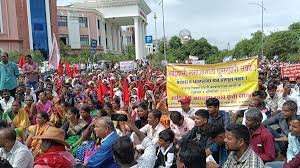
.png)
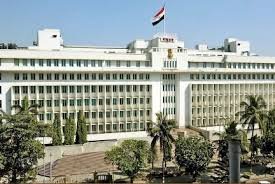
.png)
.png)
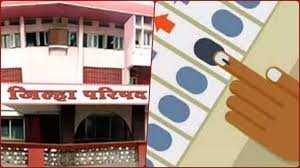
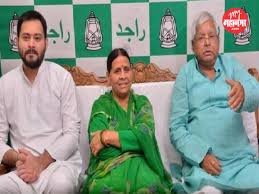
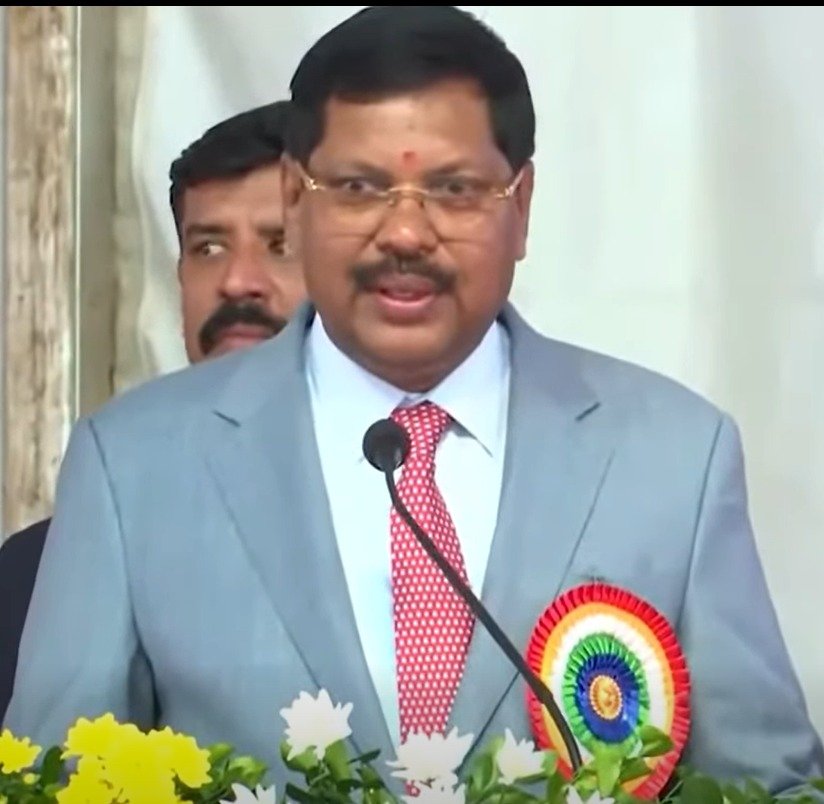
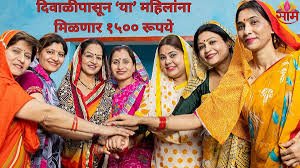
.jpeg)
